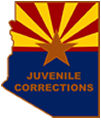Types of Hearings
Registered victims are entitled to attend and provide input at hearings where the juvenile’s release is considered. A victim’s involvement at these hearings helps to hold the youth and the system accountable to those most directly affected by the offense(s).
Two types of hearings that most commonly include victim involvement are Juvenile Community Reentry Board (JCRB) hearings and Parole Revocation Hearings.
JUVENILE COMMUNITY REENTRY BOARD (JCRB)
The right to participate in and be heard at any hearing in which a juvenile is being considered for release is one of the many victims’ rights protected by Arizona Revised Statutes. JCRB is a hearing in which the juvenile is being considered for release from a secure care facility. Victims are entitled to participate in JCRB hearings in person, telephone, or through representation by a Victims’ Rights Specialist.
PAROLE REVOCATION HEARINGS
Victims also have the right to attend and be heard at Parole Revocation Hearings. Parole Revocation Hearings are held when a youth who has previously been released from a secure care facility is suspected of violating their conditions of parole. Again, victims can participate in person, by telephone, or through representation by a Victims’ Rights Specialist.
In addition to these types of hearings, victims also have the right to provide input and recommendations when a youth is being recommended for a discharge. Most often in discharge proceedings, the victim writes a letter to the discharge committee with their recommendation and their rationale for their recommendation, and the victim feedback is considered by the discharge committee.

